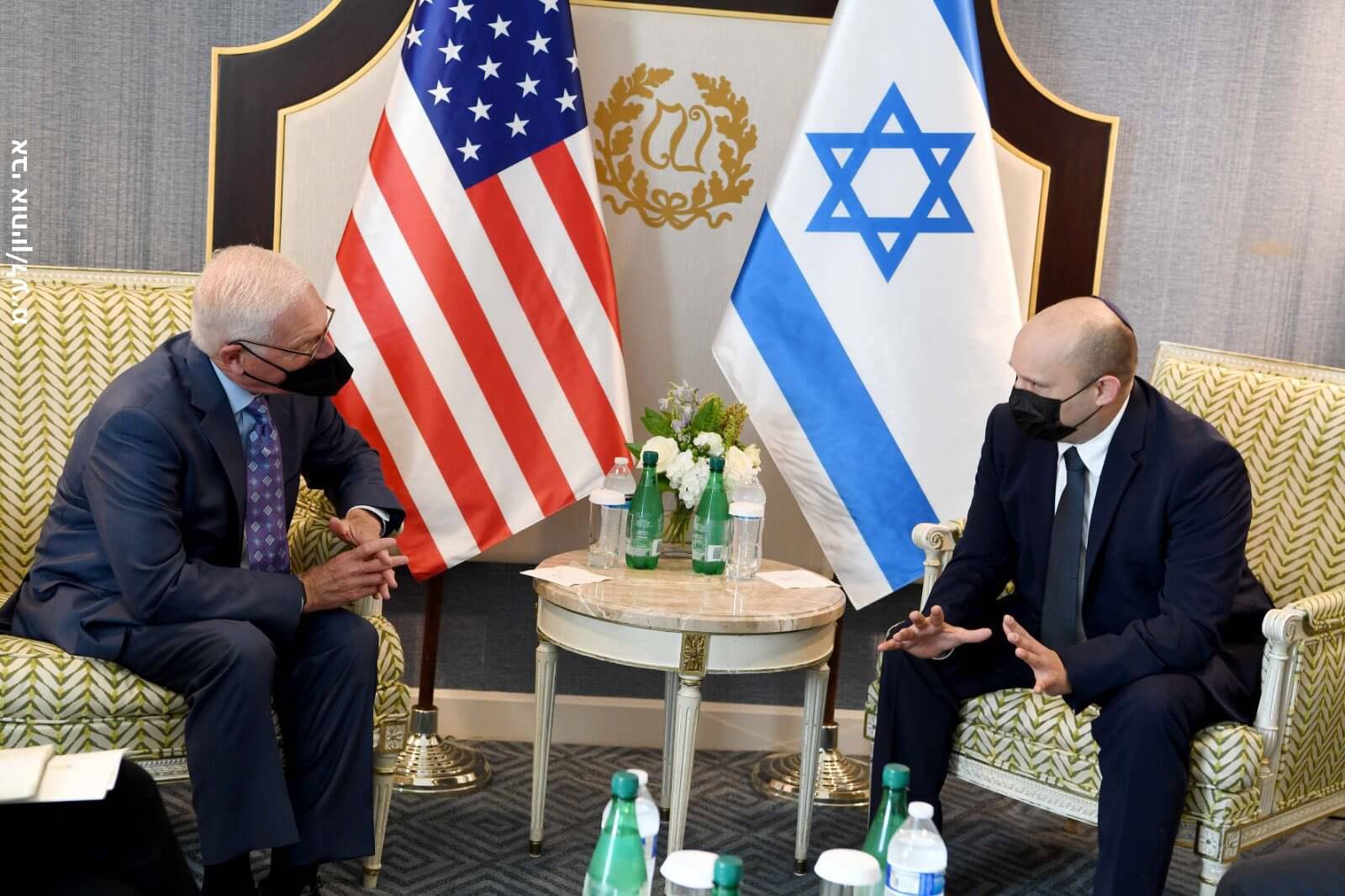Activism and BDS Beat
12 January 2018

Jeremy Corbyn outlined Labour’s foreign policy in a speech in May. (Chatham House)
UK Labour Party leader Jeremy Corbyn has signaled he is against Israel’s entry ban on prominent Palestine solidarity groups.
“Jeremy is concerned by reports that activists campaigning for justice for Palestinians, against illegal settlements and the ongoing occupation have been barred from Israel,” Corbyn’s spokesperson wrote in a statement to The Electronic Intifada.
The comments from the UK’s main opposition party were made after Israel finally published an already-existing “blacklist” of Palestine solidarity groups on Sunday.
All 20 of the human rights groups are now banned from both present-day Israel and the illegally occupied West Bank and Gaza Strip, for their support of BDS, the boycott, divestment and sanctions movement.
The list includes the UK’s Palestine Solidarity Campaign, of which Corbyn is a patron. He is also a former chair of that group.
Gilad Erdan, Israel’s strategic affairs minister, announced the publication of the blacklist.
The publication comes some months after human rights activists and lawyers used Israeli freedom of information rules to press for the release of the list and the methods used to compile it.
But Israel is still refusing to reveal the full list of people it has banned.
Globally condemned list
The blacklist has been condemned around the world, including by members of the ruling party in South Africa. The African National Congress’s Western Cape branch called it “an attack on South Africans and the ANC.”
BDS South Africa, which includes many ANC activists, is one of the groups on the blacklist.
In a 2015 interview with The Electronic Intifada, Corbyn spoke in support of key elements of the BDS movement – including some forms of academic boycott.
But last month his spokesperson seemed to shy away from this, saying that Corbyn “doesn’t support BDS” but “targeted action aimed at illegal settlements and occupied territories.”
Gilad Erdan, whose ministry leads Israel’s semi-covert war against BDS, had earlier in December claimed that, “there are anti-Semitic views in many of the leadership of the current Labour Party” in the UK. That appeared to be an attack on Corbyn.
Since Corbyn became leader of Labour in 2015, pro-Israel groups in the UK have led a false and malicious smear campaign to defame the party as “institutionally anti-Semitic.”
BDS positions
Despite Corbyn’s long-standing connections to the Palestine Solidarity Campaign, Israel this week appeared to hint he may be exempted from the entry ban.
Tel Aviv newspaper Haaretz reported that the ministry’s newly published criteria states that exceptions may be considered for “cases in which the extent of damage by denying entry to an individual is greater than the usefulness of denying entry,” one example being “holders of official positions.”
A ministry spokesperson told anti-Palestinian newspaper The Jewish Chronicle this week that each case would be “judged on its own merits.”
Kate Osamor, a member of Corbyn’s shadow cabinet and a key ally, last month tweeted her support for BDS.
But reading off a speech to an Israel lobby group in November, shadow foreign minister Emily Thornberry condemned BDS as “bigotry.”
Writing in left-wing paper the Morning Star, Ian Sinclair argued this week that Thornberry’s disturbing comments are part of a behind the scenes battle over Labour’s foreign policy.
Sinclair is the author of a book on British protests against the 2003 invasion of Iraq.
In this week’s column, he wrote “it is important that all those who want to see an anti-imperialist, humane and sane British foreign policy raise their voices against Thornberry when she glosses over Israel’s abysmal human rights record and tacks too closely to the establishment line.”
Tags
Source Article from https://electronicintifada.net/blogs/asa-winstanley/jeremy-corbyn-concerned-over-israeli-boycott-blacklist
Related posts:
Views: 0
 RSS Feed
RSS Feed

















 January 13th, 2018
January 13th, 2018  Awake Goy
Awake Goy 





 Posted in
Posted in  Tags:
Tags: 

















Add new comment